On a recent episode of The Ringer podcast The Big Picture, host Sean Fennessey openly wondered if the Limited Series - the new name for "mini-series" - might just be the future of both television and film. Outside of CBS, the days of the 24-episode TV season are long gone. In its wake, we've dwindled down to 13-episode seasons, then 10, and now shows which only produce 6 episode-seasons can be considered the Best Drama ( Game of Thrones) or Best Comedy ( Fleabag) on all of television. Movie stars like Julia Roberts want in on that; they just don't want to be shackled to the same show for years and years. Thus, the Limited Series.
Conversely, the more we're exposed to compelling Limited Series events like Unbelievable the less patience we have for more traditional movies where directors try to cram too much story into two hours. "Would this have been better off as a Netflix series?" is a running question at The Ringer for a reason.
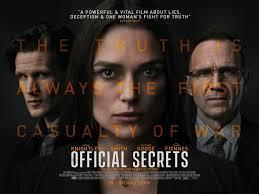
Take, for example, Official Secrets, writer-director Gavid Hood's 113-minute legal drama about the lies which got us into the Iraq war. As an employee of a British intelligence agency in 2003, a conscience-stricken Katharine Gun leaked top-secret information revealing the US government's efforts to blackmail United Nations members into voting to authorize the Iraq war. Gun had nothing to gain and everything to lose, and while she failed to stop the war she was eventually vindicated when history ultimately revealed that, yeah, George Bush and Tony Blair were lying their asses off. Given current world events - Google "whistleblower" and "Donald Trump" - a movie about Katharine Gun would seem perfectly timed. So, yes, give us Official Secrets and listen as we shout "Fight the power!" in unison.
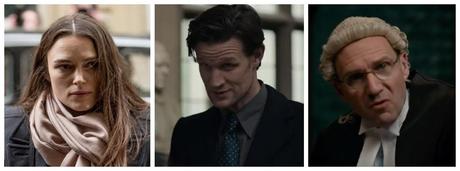
Official Secrets, however, is pitched above such obvious emotional gut-punching. It is instead a rather dutiful depiction of process, methodically tracing Gun's (played quite powerfully by Keira Knightley) leak to its contentious publication in The Observer (most personified by journalist Martin Bright, played by Matt Smith) and finally to her legal trial where her rather intimidating lawyer, Ben Emmerson (Ralph Feinnes), tries to turn her case into a referendum on the legality of the entire war.
There's a tense sequence or two, such as when Gun has to race to an airport to save her refugee husband from being deported. All the President's Men - directly invoked by Bright one point - emerges as an obvious cinematic model for the journalism scenes, though there's a bit of Spotlight in there as well. However, there is a rather noticeable effort to swim against the Hollywood stream of sensationalism and sentimentality and simply report the facts as Gun says they happened.
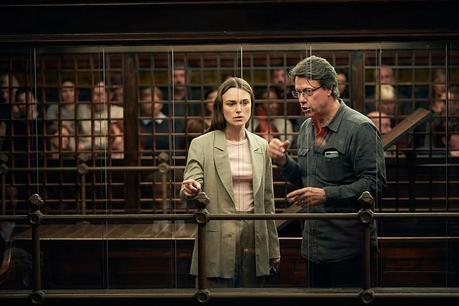
Hood - a lawyer-turned-filmmaker responsible for such politically-charged movies as Rendition and2015's excellent Eye in the Sky - makes us feel perfectly at home in a newsroom's bullpen and a law office's meeting room. His script, co-written with Sarah and Gregory Bernstein, happily dissects dry legal jargon surrounding the UK's Official Secrets Act of 1989. And they certainly try to make us feel for Gun's domestic squabbles with her husband, with the pair put their emotional paces after her one decision changes both of their lives forever.
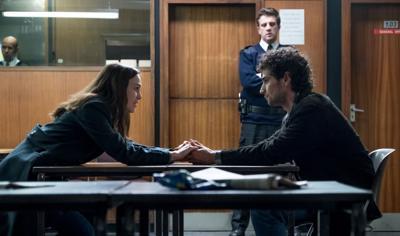
However, the overall effect of switching lead characters - from Gun to Bright to Emmerson - and condensing a year of legal history into a two-hour story gives Official Secrets the feel of an interesting magazine article or perhaps a star-studded episode of Law & Order: UK posing as a movie. If nothing else, Official Secrets is a rather effective roadmap for how a whistleblower complaint works its way through the system, but it wants to be that as well as tribute to Gun and anyone who would dare speak truth to power.
"You look at the story of Katharine Gunn and you get it. It's not that complicated," Hood told Total Film. "The question the film asks for any of us is, 'When do you speak up?' When do we, as people within an organization, speak up at the risk of losing our job? And the truth is, most people tend to support the status quo. We saying and say nothing until things are really rotten."
Official Secrets is so busy with the business of honoring the truth sayers and condemning the powerful that it does lose track of its emotional throughline. The movie, for example and spoiler, just ends without so much as a final, dramatic reunion between Gun and her husband Yasar (played by Adam Bakri), the pair meant to be the emotional center of the story. Instead, we switch to news footage of the real Gun walking out of a courthouse and being interviewed by the press, removing Knightley from the screen at the most important moment. (Last year's On the Basis of Sex attempted a similar "and now here's the real person!" trick at the end.)
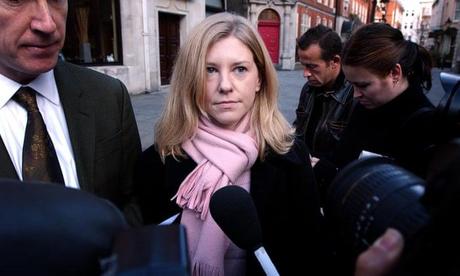
Then, text on the screen solemnly reminds us of the total lives lost in the ill-fated Iraq war and then tells us that 7 years after Gun first tried to expose her government's lies an official inquiry found even more evidence of the ways the Bush and Blair administrations conspired to lie us into war.
That last part feels like a movie unto itself. How much influence if any did Gun's trial have on the inquiry? Did her righteous lawyer Ben Emmerson or the journalist Martin Bright have anything to do with it? Why did the inquiry start in 2009, finish in 2011 and not produce its final report into 20-freakin'-16? How did Tony Blair respond? Why hasn't any of this political shade stretched past the Atlantic and fallen onto Bush, a figure now bizarrely remembered as "not as bad as Trump"? And what does any of this say about the power of the press and our beloved mythology about Woodward and Bernstein taking down a US President? Why couldn't The Observer have done the same with Tony Blair?
A Limited Series or multi-part documentary would have a better shot at capturing that than a prestige drama with awards ambitions, but even if you just want to tell Katharine Gun's story and not continue on into the Iraq Inquiry a Limited Series would probably be better at it than Official Secrets.
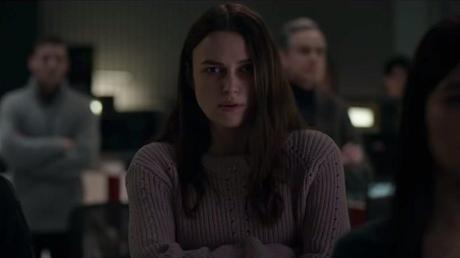
This is a movie that informs but doesn't completely grip you or pull you into the emotions of Gun's arduous journey, despite Knightley's best efforts. Spending a little extra time with the story would both better inform and give us more of a sense of what it felt like for Gun to, spoiler, spend 6 months of her life unsure if she was even going to be charged with anything or what happened to the Observer 's reporters after their article was unjustly discredited due to spellcheck errors.
If we are truly nearing the tail end of the two-hour, theatrically-released film's run of dominance, then movies like Official Secrets, last year's The Front Runner, Oliver Stone's own whistleblower movie Snowden, or Amazon's upcoming The Report - starring Adam Driver as a Senate staffer charged with investigating the CIA's post-911 "enhanced torture" program - are a dying breed. They act as closing arguments for the power of concisely summarizing historically important events in just two hours. Why make someone spend an entire night binging a story when they can get all they need from a traditional movie?
It'll all come out in the wash eventually. Hardly anyone is paying to see Official Secrets in theaters right now. There was only one other person in the movie theater with me last night. The majority of you won't see this until it's on some streaming service, listed alongside other movies, TV shows, and Limited Series. In such a setting, it'll make for a mostly effortless binge. The story progresses quickly, and its of-the-moment nature - in addition to the whistleblower angle there's also the "woman speaking up against powerful men" of it all - adds considerable intrigue. Knightley is truly quite excellent, better than the movie even. You'll think, "They don't make 'em like this anymore." The truth is, they do, but I don't know for how much longer, and in some cases the new way of doing things might be better.
RANDOM PARTING THOUGHTS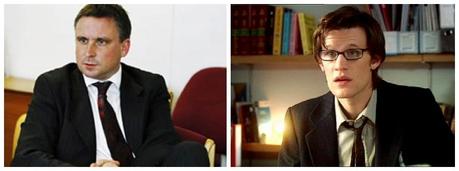
- Many of the main actors met with their real-world counterparts. Matt Smith, however, didn't really have to. He already knew Martin Bright. The two previously met when Bright served as a consultant on Party Animals - a fantastic BBC series Smith co-starred in right before landing Doctor Who. When Official Secrets came around, it was actually Bright who told the production they should cast Smith to play him.
- Knightley's meeting with Gun didn't reveal much in the way about her job because even today Gun is still bound by the Official Secrets Act. As a one-time employee of GCHQ, there's still much she isn't legally permitted to reveal and won't be for the rest of her life.
- We've now seen two movies about the Iraq war in the past year. Vice, an American production, is a big, brash and hit-you-over-the-head-with-the-themes Adam McKay vehicle; Official Secrets, a British production, is far more reserved and devoted to dutiful journalism. That feels appropriate somehow, each film adhering to the cliches about loud Americans and Stiff Upper Lip Brits.

Grew up obsessing over movies and TV shows. Worked in a video store. Minored in film at college because my college didn't offer a film major. Worked in academia for a while. Have been freelance writing and running this blog since 2013. View all posts by Kelly Konda

